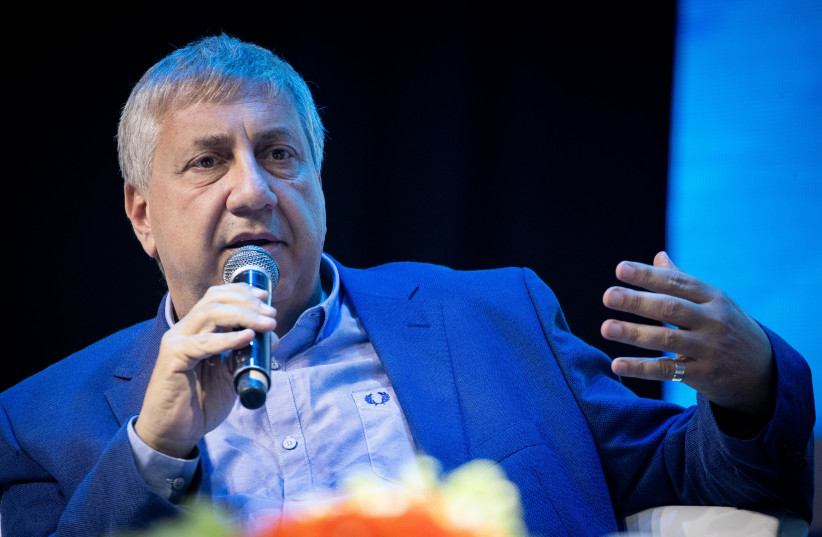A troubling interpretation of the fundamental democratic principle, “a free press,” has taken hold recently among certain segments of Israeli society.
This interpretation says the following: “I’m all in favor of a free press, as long as the press which is free agrees with me. Otherwise, shut ’em up.”
Though obviously an exaggeration for illustrative purposes, recent media-related incidents suggest this viewpoint is not science fiction.
Free press in Israel: Is it really free for everyone?
On Tuesday evening, someone leaked a letter sent by lawyers for Channel 13 reporter Sefi Ovadia, who has hosted a morning news talk program on Army Radio for the last year. The letter was addressed to the station’s interim chief, veteran journalist Danny Zaken. The attorneys asserted that Zaken had reprimanded Ovadia for criticizing Yaakov Bardugo, a devoted supporter and confidant of Prime Minister Benjamin Netanyahu and a former Army Radio broadcaster who is currently a regular contributor on Channel 14 and Galei Yisrael.
According to the letter, Zaken told Ovadia that the radio station – which has been under a cloud of uncertainty for years – had a better chance of survival in the current political climate if Bardugo was not criticized.

Last month, a day after Ovadia’s criticism of Bardugo was aired, Walla reported that Zaken intended to cancel Ovadia’s show, which he co-hosts with Yanir Cozin, after the upcoming High Holy Days.
Adding further intrigue to the whole story is that Bardugo – who had filed a lawsuit against Army Radio for removing him last year when Benny Gantz was defense minister because of what Bardugo claimed were political considerations – is reportedly close to Zaken and played a role in securing Zaken’s role as temporary commander of the station.
Ovadia’s lawyers’ letter, as well as some commentary on Wednesday, framed this as a freedom-of-press issue: that a journalist should not be taken off the air – or threatened to be taken off the air – because of criticism of someone close to the prime minister. That point should be self-evident.
But some people who are justifiably up in arms over efforts to squelch criticism of a Netanyahu’s close ally are less worked up about attempts to financially strangle Channel 14 because of its political orientation.
Last week Ari Shamai, a lawyer who was a panelist on one of the station’s programs, called for the release of Yigal Amir, the assassin of former prime minister Yitzhak Rabin. The channel immediately distanced itself from the statement and said Shamai would never reappear on their platform.
Nevertheless, two major advertisers – the Strauss Group food conglomerate and Delek Motors – said they would cease advertising. Anti-judicial reform activists who see Channel 14 as a mouthpiece for Netanyahu then picked up the ball and have tried to get other advertisers to pull their money from the station.
Why? They will say it is because they view it as a divisive media outlet. But if they are honest, they will admit that it is not the only divisive media outlet in the country. The underlying reason is likely because they don’t like the opinions aired on the channel.
While it is obviously legitimate for advertisers to decide where to put their advertising shekels, what is more concerning is the coordinated effort, as it has now become, to shut down the station because those behind the campaign consider it pro-Netanyahu propaganda.
Ironically, there have been several instances at anti-judicial reform rallies where individuals who vocally champion democracy try to impede Channel 14 reporters from broadcasting live. More than once, Channel 14 reporters have had their cameras blocked intentionally by flags or had horns blown into their ears as they were trying to broadcast.
Over the years, there have been several attempts to silence Channel 14 and its predecessor, Channel 20, by people who don’t like its right-wing slant, and these efforts are sometimes led by those who wave the banner of democracy the highest.
Last September, in a thinly veiled attempt to financially choke the station and perhaps even get its license revoked, then-prime minister Yair Lapid’s Yesh Atid Party petitioned the Central Elections Committee to declare Channel 14 as a propaganda platform.
The petition contended that the station posed a “real threat” to the fundamental principles of elections since it is “completely harnessed in favor of a candidate and a party, without balance and contrary to every standard of reasonableness, fairness, and common sense.”
Supreme Court Justice Yitzhak Amit, the committee’s chairman, dismissed the petition and ruled that Yesh Atid must compensate Channel 14 for legal costs.
“Freedom of political expression is an inseparable part of holding free and fair elections, and through it, voters can get an impression of the ‘market of opinions’ and make an informed decision when they come to put their vote in the ballot box,” he wrote.
This is true not only during an election season but throughout the year. Let Ovadia criticize Bardugo, and let Bardugo’s perspectives continue to air on Channel 14. That is the meaning of a free press – allowing opinions to be aired even if the government or those in the opposition don’t like what those voices are saying.
